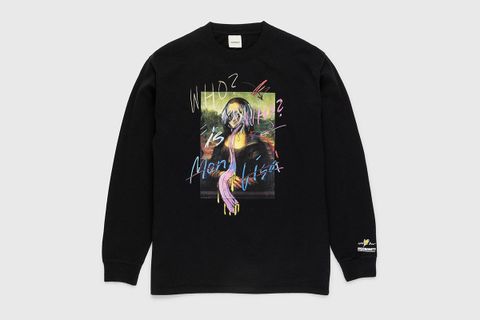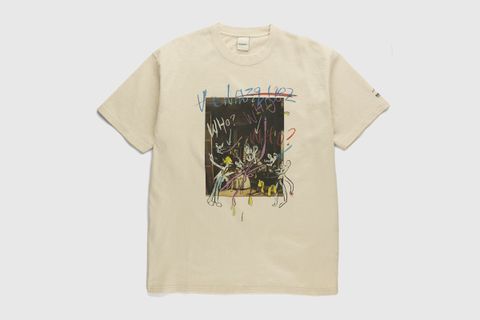Everyone Hates SHEIN But No One Wants to Stop Buying It
When SHEIN's $100 billion valuation was announced in early April, the general fashion-buying public collectively dry-heaved. SHEIN has developed a thriving business off the back of presumed slave labor, stolen designs, and inhumanely fast turnaround, but that's just capitalism, baby.
Founded as wedding dress retailer "Sheinside" in 2008 by Chris Xu, SHEIN became a global phenomenon in the past few years on the strength of its data-driven reach and ultra-fast production cycle.
SHEIN's SEO powers are reputedly the result of Xu's background as a "marketing and search engine optimization consultant." Those skills aided Xu in turning SHEIN into a veritable marketing machine.
"By implementing automation to optimize production efficiency and our supply chain, we... provide customers with an affordable range of hyper-trendy styles," Xu himself said in a robotic SHEIN CEO letter.
Speaking of efficiency, SHEIN is able to create an ungodly number of garments in an inhumanly short time. The online-only retailer is estimated to release between 500 and 2,000 products every single day — hyper-fast-fashion competitors like Fashion Nova and Missguided reportedly manage only 1,000 a week.
Of course, 1,000 brand new pieces of clothing a week is still an insane number of garments. We're talking upwards of 52,000 garments a year, and that's being optimistic.
How much of that ends up in landfills or thrift stores (and then landfills)? Well, a 2017 study (co-funded by fast-fashion juggernaut H&M) estimated that the math works out to about a garbage truck's-worth of textiles being sent to the dumps every second.
The amount of waste SHEIN must generate with its ultra cheap garments, always-churning factories, and international shipping, must be immense.
Not to mention, the constant swirl of cheap, disposable clothing normalizes the $6 T-shirt, the $15 denim jean, the $22 jacket.
The real price of quality clothing becomes only further obscured until it seems unreasonable.
SHEIN, more than most other fast-fashion giants, is incredibly secretive about its supply chain and manufacturing processes.
SHEIN isn't alone in providing a vague "Sustainability & Social Impact" report, which offers vague platitudes about SHEIN's company values and nothing in the way of traceability.
"To protect our shared home, SHEIN is committed to lowering emissions and reducing waste at every stage of the value chain," the company said in that "Sustainability & Social Impact" report, which sounds nice as a blanket statement but is much nicer as provable action.
Note that SHEIN hired Adam Whinston as its "Head of ESG" ("Environmental, Social and Governance") in November 2021, which didn't silence SHEIN's critics.
In a rare moment of earnestness, the aforementioned report also acknowledges that over 33% of SHEIN's suppliers suffer "general risks" at best, with 12% of those suppliers engaging in multiple "Zero Tolerance Violations" (ZTV). The remaining 66% are designated "outstanding performance with minor flaws" that include emergency preparedness and working hours.
According to SHEIN itself, underage labor comprises just under one percent of its suppliers' violations, but it's still present in the SHEIN supply chain.
Realize that there's no guarantee that these laborers are being paid anywhere close to a true livable wage and it becomes all too clear that the people making SHEIN's clothes and fulfilling its logistics are getting the shortest end of a very long stick.
Even companies that supply SHEIN its product get shafted — one "loungewear" designer said her company makes less than $1 per item that it produces for SHEIN.
Not to mention, SHEIN infamously steals from indie designers and artists, swiping everything from garment designs to prints in wholesale ideological theft.
All this is justification for avoiding SHEIN like the plague. But there's a reason that the company is valued at $100 billion (more than Zara and H&M combined) and garnered upwards of $2 billion in fundraising: consumers can't get enough of its ultra-cheap, disposable goods.
On Highsnobiety's Instagram post about SHEIN's fast-fashion takeover, comments ranged from "BLOCK SHEIN" to "I have no respect for SHEIN," with nary a positive word to be found.
The response is similar to the fallout kicked up over the SHEIN X 100k Challenge, the company's "finding the next great designer" competition overseen by famous faces like Khloé Kardashian and Christian Siriano.
Jenna Lyons got so much blowback for participating in the event that she turned off comments on her accompanying Instagram post.
The public clearly despises SHEIN but someone's buying.
A massive number of SHEIN "haul" videos are uploaded on YouTube every day.
Some videos have a handful of views, others reach upwards of a million. Some are from everyday SHEIN consumers, others are created by SHEIN's massive collective of "ambassadors" and influencers who're given free product in exchange for promoting the brand online (they usually have the most views on their videos, for reference).
On TikTok, the SHEIN hashtag has over 25 billion views.


